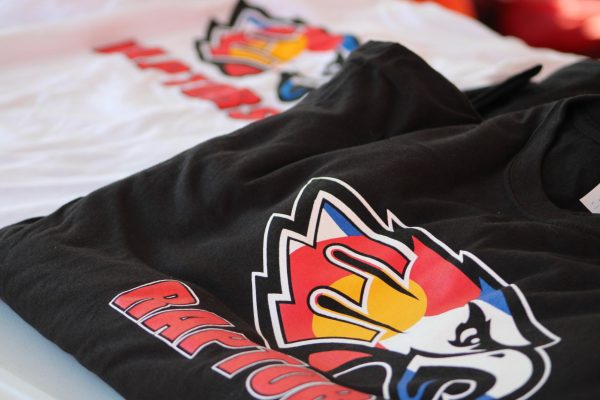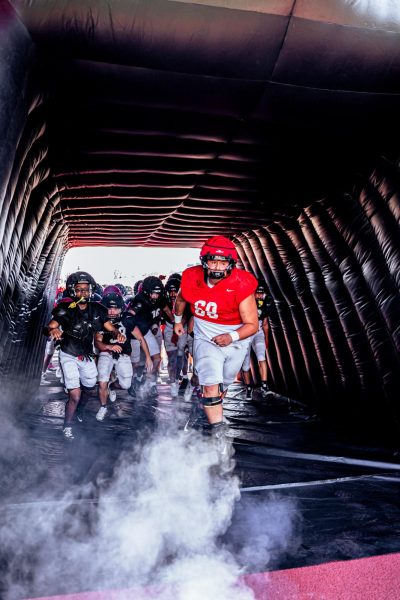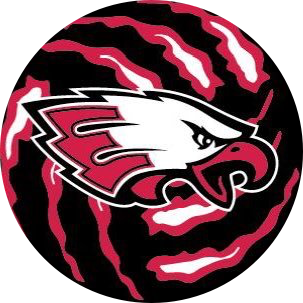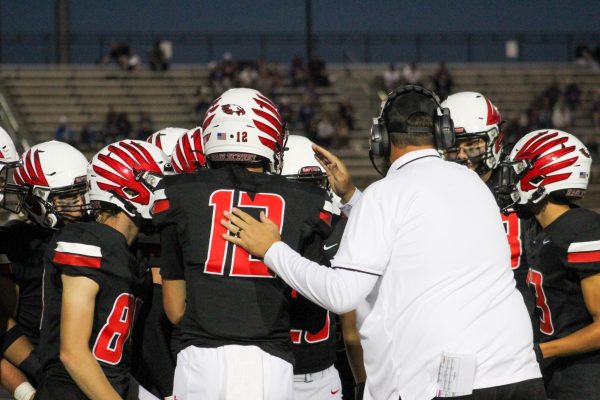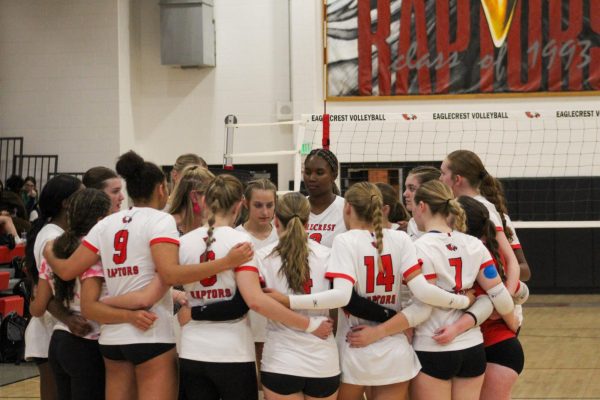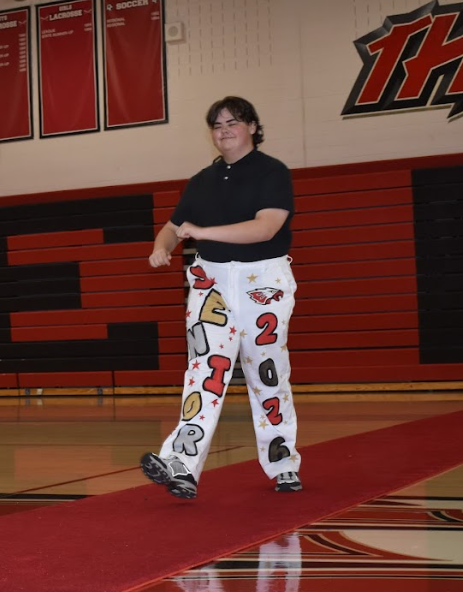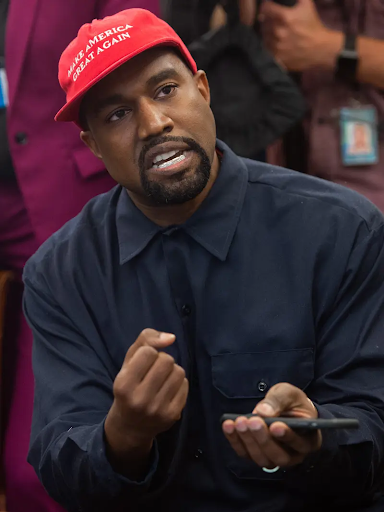Sports: Another Victim of COVID?
How the Pandemic has Changed this Staple of High School
Football season, Raptor Rallies, late nights spent at games and practices: all staples of the Eaglecrest high school experience. But in our new, COVID-induced reality, these things are practically nonexistent. Football was postponed, rallies canceled and many sports practices and games are no longer happening. Eaglecrest Athletics, along with so much else, has thus been impacted substantially by this coronavirus.
“I feel like I am constantly the ‘Mask Police’,” said math teacher and cross country coach Alison Hunt. “I have to remind runners when they need to wear their masks and when they are allowed not to – mostly reminding them to bring them to the starting lines of races because this is something new to them.” The Colorado High School Activities Association’s (CHSAA) new COVID-19 regulations now mandate mask wearing for all participants not actively taking part in drills, practice, or races. But of course, this isn’t the only new rule.
In light of the pandemic, many more restrictions have been placed on athletes and events. Among others, equipment must be properly sanitized, all participants must properly social distance, and temperatures of every athlete must be taken at every practice and race to ensure they are free of COVID-19 symptoms.
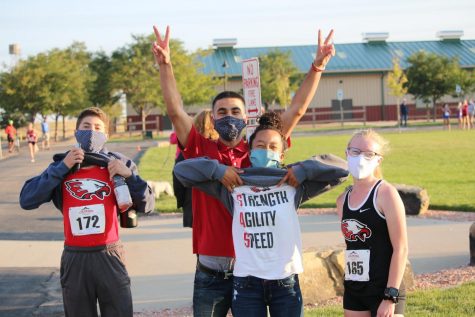
CHSAA also decided to not only postpone many fall sports, including football, cheerleading, field hockey and volleyball, but to divide the athletic year into four seasons. The number of athletes allowed to play at the events has been reduced for many, and limits on spectators are being enforced as well. Naturally, for each sport, individual changes had to be made in order to reduce potential spread of the virus.
“The biggest change by far was that each player received their own tennis balls, which they had to initial,” said tennis player Lucas Fadem (Jr.). “We were only allowed to touch our initialed tennis balls. This became very expensive.” But while this change was specific to tennis, some changes were applied to all sports.
Every sports season was shortened, limiting the number of games and making each competition even more crucial for athletes. In fact, Season A, which includes boys tennis, boys golf, softball and cross country, is already coming to a close.
“I’m honestly really sad now that the season’s kinda ending,” said cross country runner and senior Alie Selenke. “I feel like the season is not as long [and] that kind of makes me sad because I want to try my best. I want to try to beat my times and stuff, and I just don’t have the time.” Selenke, who is also a captain of the swim team, likewise expressed disappointment at the shortening of swim season, which now lasts only from January to February. Most Season A sports, meanwhile, are ending at the beginning of October, which gives athletes a mere two to three weeks -rather than the usual four to five they would have- to compete.
“Because of our shortened season, we felt that each practice should be more meaningful; that’s not to say that they weren’t just as important in the past, yet we focused more on our technique,” Fadem said. “In a negative way, I believe that we, as a team, were just on the cusp of achieving really good things. A bit more time might’ve provided us with more success coming down to regionals.” And indeed, the CHSAA restrictions have had both positive and negative ramifications. For cross country, the new restrictions have greatly altered races.
“The number of runners that are allowed to be on varsity is the biggest difference,” Hunt said. “There are normally 9 runners who can earn a varsity spot, now there are only 6 each race….This means that varsity is not really rotating out girls this season because generally, it is only the last few spots where there is movement and those have been eliminated this year.” This, along with other changes, has greatly changed team dynamics for cross country. Races have also been split into two heats to reduce contact, and runners must wear their masks at all times unless actively racing.
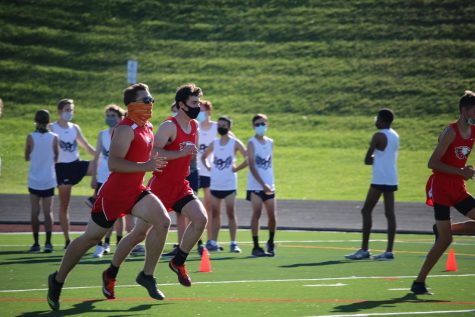
To say the least, for many athletes this has been jarring.
“It can be hard to let go of some of the things you may have enjoyed most about the sport,” Fadem said. As Fadem touches on, some of the most difficult changes to our school’s sports are not physical, but rather mental. The physical separation necessary to prevent the spread of COVID has also caused somewhat of a mental separation that can be tough for everyone, but especially for athletes who typically rely on their teams.
“I miss the part of having a team. I feel like it’s all separated,” Selenke said. This has a big effect on most athletes, and Coaches have noticed it as well.
“I have watched girls struggle to be excited this year because they are running with less of their team and they are not able to do bonding activities with one another in large groups,” Hunt said. Yet both Coach Hunt and Anderson noted that they were grateful to have a season in the first place. And they, along with Selenke and Fadem, seem to agree that looking at the positives is a helpful mentality to have.
“I find it easier to be understanding than complain during this chaotic time,” Anderson said. Selenke too chose to be optimistic, describing the fact that practice gives her a chance to see her best friend, whom she doesn’t get to be with as often anymore because of the split cohorts.
“It kind of made me realize that I’m not in this alone,” Selenke said of the changes due to COVID. “We’re all working together to improve. We’re all improving together, even though there’s stuff stopping us, so that just makes me feel better that there are people here for me.” Hunt echoes this sentiment.
“This is a second family and support system where we bond by sharing meals and conversations amongst each other,” said Hunt.
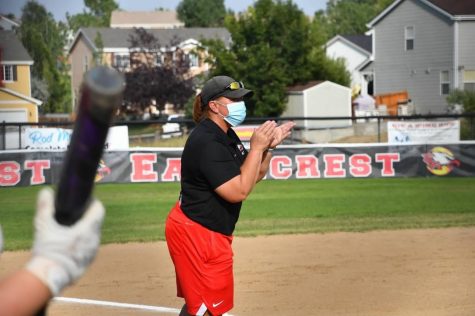
But now, in the age of COVID, you must make do without team dinners and team bonding. You must ignore the instinct to hug your teammate after a game or a race. You must even forgo any handshaking or high-fiving. And this is not an easy thing to do.
Having experienced a season in the midst of COVID and having to prepare for another, Selenke’s advice is this: “Try your best. Even though you might think practice won’t matter, it definitely will. So just try your best throughout the whole season and just try to have as much fun as you can.” Yes, COVID has complicated life, including high school sports, in so many ways. But remaining positive in the face of that is important, according to Selenke and Fadem.
“With the distress that may come with the present day regulations, I feel that it is important to pay attention to the facets of the sport that have stayed just the same,” Fadem said. “Looking out for one another can also help to ensure that playing a sport can be that escape that we athletes rely on, especially during the most difficult times.” Anderson, meanwhile, suggests a different way to cope.
“My advice to fellow athletes is to use this time to reflect and grow. I thought about ways I could better myself mentally and physically in order to set myself up for success,” Anderson said. While taking something so devastating as the year of 2020 and turning it into something good isn’t easy, but according to Anderson, it’s worth it. From an athlete’s perspective, making the most of the season you have seems to be the way to go. From a coach’s perspective, Hunt concurs.
To her seniors, Hunt says: “Give it your all and go down fighting. As scary as it may be, this may be the last time you play this sport on a team, so enjoy every minute and have fun.”
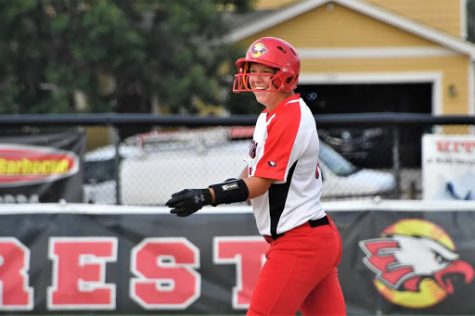
Sports across the world have ground to a reluctant halt, and the same is true for our school. Semester one isn’t quite the same without Friday nights spent at football games, without volleyballs soaring over nets in the gym, without our rousing rallies and spirited camaraderie.
Yet we are attempting to safely build back to our typical athletics schedules, but it will take time and work. Every athlete, every coach, and even every spectator must be mindful of the changes COVID has caused and must work together to keep sports safe so that they can continue to occur.
“Confront the season with a positive attitude and you are more likely to have a positive outcome,” said Hunt. One day, hopefully sooner rather than later, our sports seasons will return to normal, but for now, we can only continue to work together — with masks and sanitizer on hand, of course.
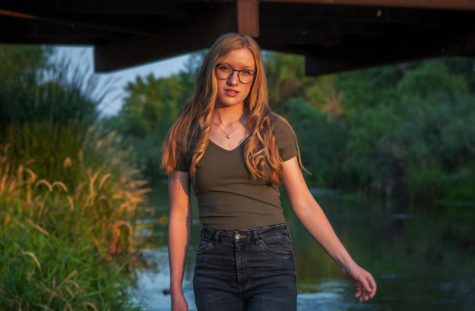
Simone Beauchamp is a Senior at Eaglecrest and, as she will let you know, she graduated from Challenge Middle School. She has many talents - photography,...


